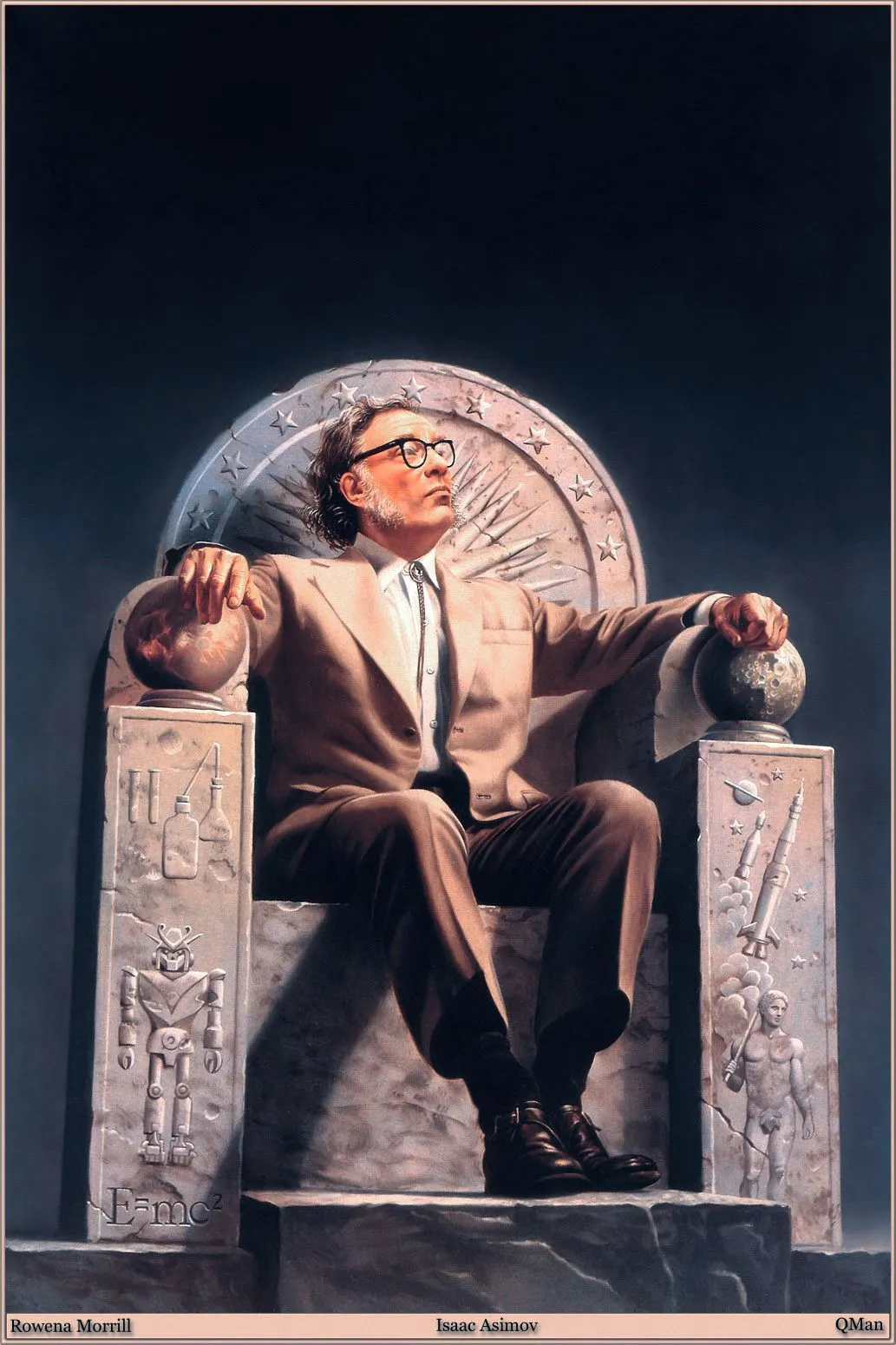Unit 11
Bac
Exam file
Préparation aux épreuves communes de contrôle continu
Ressource affichée de l'autre côté.
Faites défiler pour voir la suite.
Faites défiler pour voir la suite.
Épreuve d'expression écrite avec :
- compréhension écrite 1h30
- compréhension orale 1h
- compréhension écrite 1h30
- compréhension orale 1h
Ressource affichée de l'autre côté.
Faites défiler pour voir la suite.
Faites défiler pour voir la suite.
Compréhension de l'écrit
[...] Isaac Asimov, one of the 20
th
Century's bestknown science fiction authors, in 1964 published an
essay predicting what our world would look like today.
[...] Here's a look at 2014, through the eyes of 1964.
1. “Communications will become sight-sound and you will see as well as hear the person you telephone.”
The first transcontinental video call between two places was made on 20 April 1964 using technology developed by Bell Systems (later Bell Laboratories), which may have partly inspired Asimov's prediction.
2. It will be possible “for you to direct-dial any spot on earth, including the weather stations in Antarctica”.
3. “Robots will neither be common nor very good in 2014, but they will be in existence.”
Asimov is credited with introducing the word robotics into the English language, so it is perhaps no surprise he was right in predicting that no real robot yet exists that can rival The Jetson's housemaid, Rosie—first brought to screen in 1962. [...]
4. “As for television, wall screens will have replaced the ordinary set; but transparent cubes will be making their appearance in which three-dimensional viewing will be possible.”
One of the most notable aspects of Asimov's predictions is that he often nailed the technology, but overestimated the enthusiasm with which such technologies would be greeted.
5. “Conversations with the Moon will be a trifle uncomfortable.”
Of course, Asimov was bound to have a few duds. The dawn of the Space Age might have made him a bit optimistic about communications with our Moon suburbs—calls would have a delay of 2.5 seconds, he thought—although he was spot on when he predicted that by 2014 “only unmanned ships will have landed on Mars”. He did not, however, predict the Mars Curiosity's Twitter account.
6. “Kitchen units will be devised that will prepare ‘automeals', heating water and converting it to coffee.”
Automated coffee machines do indeed exist. Asimov's predictions that processed yeast and algae products would be available in a variety of flavours, including “mock-turkey” and “pseudo-steak”, were semi-realised last year when scientists unveiled the first laboratory-grown burger. [...]
7. “An experimental fusion-power plant or two will already exist.”
[...] Asimov's predictions about large solar-power stations in desert and semi-desert areas like Arizona and the Negev desert are accurate.
1. “Communications will become sight-sound and you will see as well as hear the person you telephone.”
The first transcontinental video call between two places was made on 20 April 1964 using technology developed by Bell Systems (later Bell Laboratories), which may have partly inspired Asimov's prediction.
2. It will be possible “for you to direct-dial any spot on earth, including the weather stations in Antarctica”.
3. “Robots will neither be common nor very good in 2014, but they will be in existence.”
Asimov is credited with introducing the word robotics into the English language, so it is perhaps no surprise he was right in predicting that no real robot yet exists that can rival The Jetson's housemaid, Rosie—first brought to screen in 1962. [...]
4. “As for television, wall screens will have replaced the ordinary set; but transparent cubes will be making their appearance in which three-dimensional viewing will be possible.”
One of the most notable aspects of Asimov's predictions is that he often nailed the technology, but overestimated the enthusiasm with which such technologies would be greeted.
5. “Conversations with the Moon will be a trifle uncomfortable.”
Of course, Asimov was bound to have a few duds. The dawn of the Space Age might have made him a bit optimistic about communications with our Moon suburbs—calls would have a delay of 2.5 seconds, he thought—although he was spot on when he predicted that by 2014 “only unmanned ships will have landed on Mars”. He did not, however, predict the Mars Curiosity's Twitter account.
6. “Kitchen units will be devised that will prepare ‘automeals', heating water and converting it to coffee.”
Automated coffee machines do indeed exist. Asimov's predictions that processed yeast and algae products would be available in a variety of flavours, including “mock-turkey” and “pseudo-steak”, were semi-realised last year when scientists unveiled the first laboratory-grown burger. [...]
7. “An experimental fusion-power plant or two will already exist.”
[...] Asimov's predictions about large solar-power stations in desert and semi-desert areas like Arizona and the Negev desert are accurate.
“World's Fair: Isaac Asimov's Predictions 50 Years On”, Kim Gittleson, BBC.com, 2014.


Ressource affichée de l'autre côté.
Faites défiler pour voir la suite.
Faites défiler pour voir la suite.
Questions
a) Pick out the
dates in the first
paragraph. What
do they correspond
to?
b) What is the invention mentioned here?
c) Is this possible today? Thanks to which device?
d) Which word did Asimov invent? Why?
e) What could the wall screens he refers to be in today's world?
b) What is the invention mentioned here?
c) Is this possible today? Thanks to which device?
d) Which word did Asimov invent? Why?
e) What could the wall screens he refers to be in today's world?
f) What was
Asimov better
at predicting?
Compared to
what?
g) What did he predict about Mars? Was he right?
h) Can you find in today's world devices which correspond to this item? Justify.
i) Which invention was he wrong about?
g) What did he predict about Mars? Was he right?
h) Can you find in today's world devices which correspond to this item? Justify.
i) Which invention was he wrong about?
Ressource affichée de l'autre côté.
Faites défiler pour voir la suite.
Faites défiler pour voir la suite.
Compréhension de l'oral
Aldous Huxley and Brave New World: The Dark Side of Pleasure, Academy of Ideas.
Ressource affichée de l'autre côté.
Faites défiler pour voir la suite.
Faites défiler pour voir la suite.

Ressource affichée de l'autre côté.
Faites défiler pour voir la suite.
Faites défiler pour voir la suite.


Ressource affichée de l'autre côté.
Faites défiler pour voir la suite.
Faites défiler pour voir la suite.
Questions
1
Sur quoi peut porter cet enregistrement ? Faites trois hypothèses.
Astuce : vous pouvez vous aider du nuage de mots.
2
Trouvez cinq autres mots que vous pourriez entendre dans
l'enregistrement.
Première écoute → Écoutez l'enregistrement et prenez des notes.
3
a. Relevez tous les mots que vous entendez.
b. Prenez en note tous les noms propres. À quoi / qui font-ils référence ?
4
Utilisez vos notes pour répondre à des questions simples.a. De quel type de document s'agit-il ? D'où vient-il ?
b. Combien de personnes sont présentes ? Qui sont-elles ?
c.Quel est thème de l'enregistrement ?
Écoutes suivantes → Écoutez l'enregistrement à nouveau et complétez vos notes avec davantage de détails.
a. Comment la société est-elle présentée ?
b. Quel est le lien avec les romans mentionnés dans l'enregistrement ?
Écoutes suivantes → Écoutez l'enregistrement à nouveau et complétez vos notes avec davantage de détails.
5
Apportez des précisions sur ce qui est présenté.
a. Comment la société est-elle présentée ?
b. Quel est le lien avec les romans mentionnés dans l'enregistrement ?
6
Contre quoi cet enregistrement nous met-il en garde ?
7
Avec l'aide de vos réponses aux questions précédentes, rendez compte de
l'enregistrement en français.
Ressource affichée de l'autre côté.
Faites défiler pour voir la suite.
Faites défiler pour voir la suite.
Expression écrite
Choisissez un sujet et répondez-y en anglais en 120 mots.
Sujet A
• You are a blogger writing about technology. You attend this year's World Fair. You start imagining how different technology and society will be in 50 years. Post an article on your blog with your predictions.
Sujet B
, • To what extent do science fiction authors warn us about the dangers of technology?
Sujet C
• As a junior journalist, you decide to write an article to raise awareness among people of your generation about the impact of new technologies on their future life. You can either warn them against them or on the contrary promote their use.
Ressource affichée de l'autre côté.
Faites défiler pour voir la suite.
Faites défiler pour voir la suite.
Assurez-vous d'utiliser les temps
appropriés pour parler du futur,
et les modaux appropriés pour
exprimer une probabilité.
Utiliser des mots de liaison (link words).
Utiliser des mots de liaison (link words).
Ressource affichée de l'autre côté.
Faites défiler pour voir la suite.
Faites défiler pour voir la suite.
Retrouvez un sujet type bac supplémentaire sur le .
Une erreur sur la page ? Une idée à proposer ?
Nos manuels sont collaboratifs, n'hésitez pas à nous en faire part.
j'ai une idée !
Oups, une coquille

